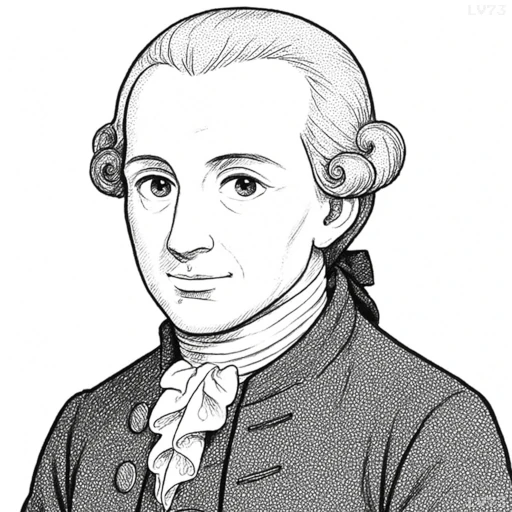“The only objects of practical reason are therefore those of good and evil. For by the former is meant an object necessarily desired according to a principle of reason; by the latter one necessarily shunned, also according to a principle of reason.”

- April 22, 1724 – February 12, 1804
- Born in Germany (East Prussia)
- Philosopher
table of contents
Quote
“The only objects of practical reason are therefore those of good and evil. For by the former is meant an object necessarily desired according to a principle of reason; by the latter one necessarily shunned, also according to a principle of reason.”
Explanation
In this quote, Immanuel Kant is explaining the fundamental nature of practical reason, which is the use of reason to guide action, as opposed to theoretical reason, which is concerned with understanding the world. Kant argues that the only objects of practical reason are those of good and evil—that is, what is morally right or wrong. He defines good as something that is necessarily desired according to reason, meaning it is something we are rationally inclined to pursue because it aligns with moral principles. Conversely, evil is something that is necessarily avoided, as it conflicts with our rational understanding of what is morally wrong. Thus, for Kant, moral action is not based on personal desires or arbitrary preferences but is instead grounded in universal principles that dictate what we ought to pursue or avoid.
In modern moral philosophy, this idea is significant because it challenges both hedonistic and consequentialist views that focus on pleasure or outcomes as the primary motivators for action. Instead, Kant’s ethics emphasizes that moral actions are dictated by reason and must be aligned with a principle of duty, independent of the results. For example, a person might choose to act honestly or fairly, not because doing so will bring personal happiness or favorable outcomes, but because it is rationally right according to moral law. Kant’s emphasis on practical reason reminds us that ethical decision-making is not simply about achieving desired results, but about adhering to principles that are universally valid and morally binding.
Historically, this perspective was revolutionary in its shift from earlier ethical systems, such as utilitarianism, which often focus on the consequences of actions as determining factors of right and wrong. Kant’s approach centers on the inherent moral worth of actions, rather than their consequences, a radical departure from traditional views. His theory of practical reason is foundational to deontological ethics, where the focus is on duty and the inherent rightness of actions. This distinction remains influential today, particularly in discussions on moral absolutism versus moral relativism, human rights, and justice. Kant’s view offers a rational foundation for moral decision-making, emphasizing that what we choose to do is not based on subjective desires or external outcomes, but on adherence to objective moral laws.
Would you like to share your impressions or related stories about this quote in the comments section?
